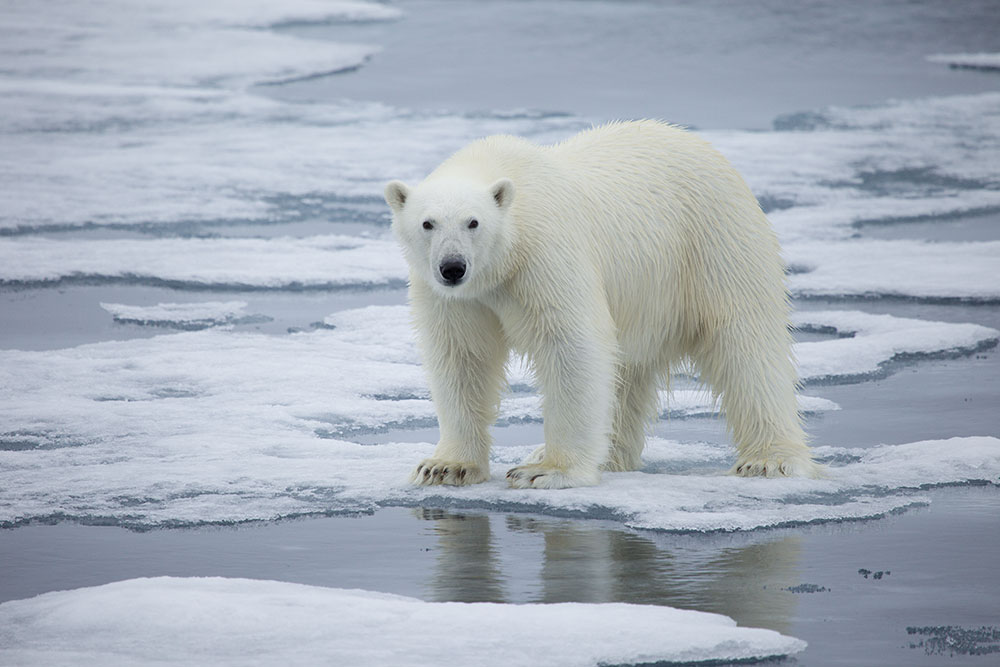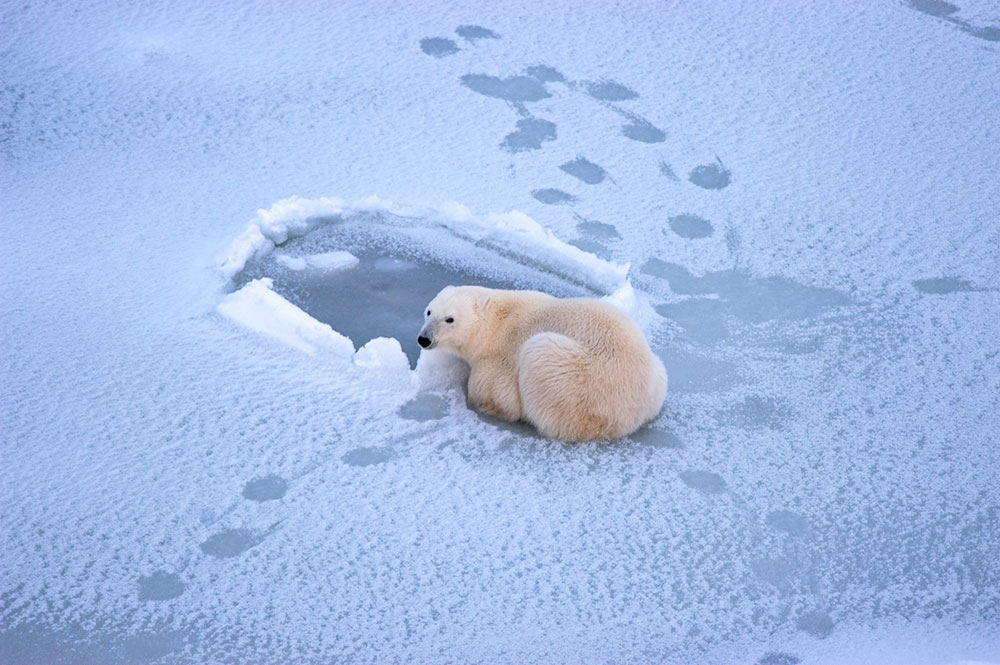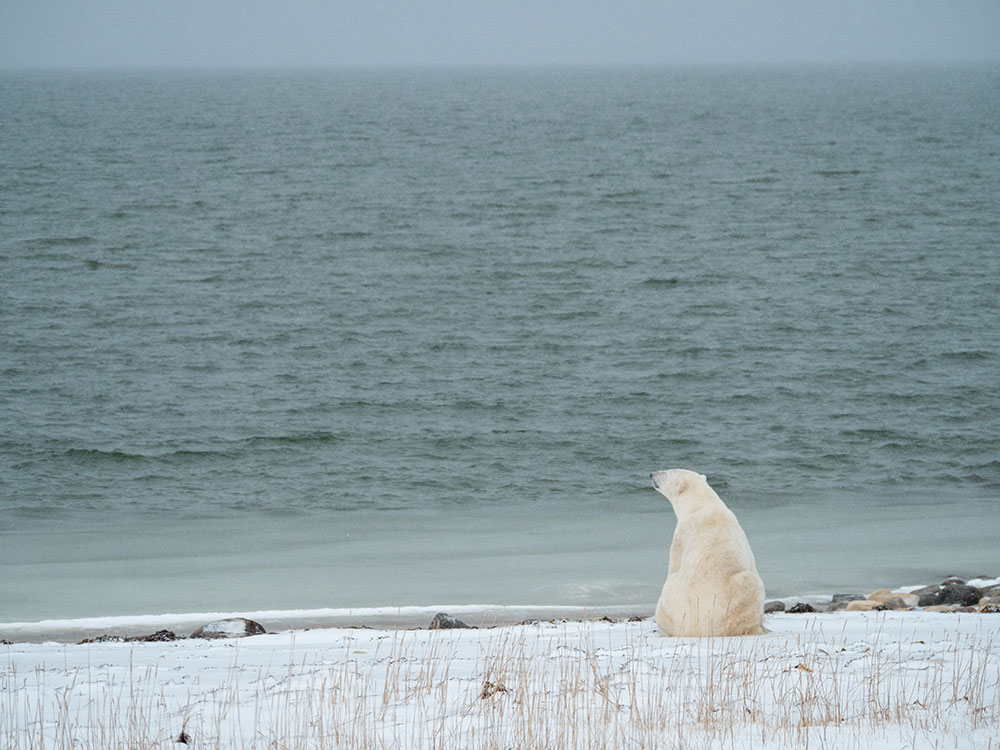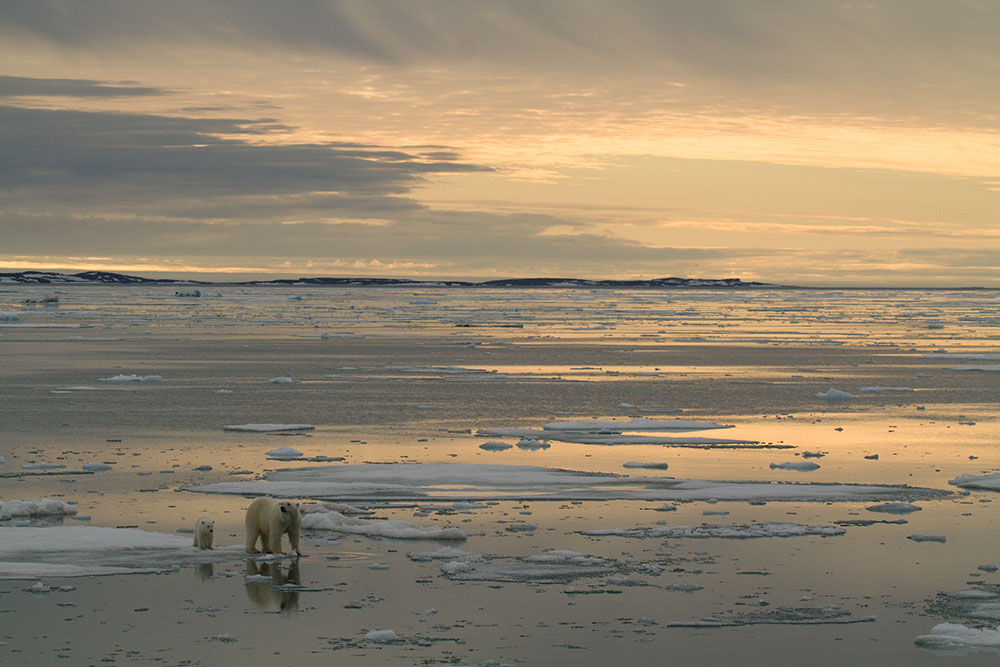 A graduate project at Alaska Pacific University is using the power of the polar bear to teach kids about climate change.
A graduate project at Alaska Pacific University is using the power of the polar bear to teach kids about climate change.
Emily Miller is pursuing a master’s degree in outdoor and environmental education at APU. For her graduate project, she designed new curricula for conservation nonprofit Polar Bears International (PBI) to make climate change accessible for young audiences. Creating simple, solutions-based learning materials can aid a new generation in learning and taking action against climate change, she said.
Miller first connected with PBI while working as an educator at the Alaska Zoo. PBI even invited her to Churchill, Manitoba to view wild polar bears and talk about positive solutions for climate education. “That was a pivotal moment for me as an educator,” Miller said.

“I figured if I was feeling that way, then teachers and other educators were probably feeling that way too,” she said. So she approached PBI about designing new curricula for grades 3-5 about climate change.
That worked great for PBI, said Director of Conservation Outreach Alyssa McCall. The nonprofit receives frequent requests for new teaching tools. “What Emily is doing here just fits in so well with what we’re trying to do,” she said. “We think that by reaching students and teachers, by offering really great and interesting educational pieces about polar bears, that we can help foster this new generation of conservationists.”
Using data and advice from PBI, Miller designed a series of four teaching lessons for all three grade levels. Instructors can use one or all, consecutively or out of order. “I wanted them as adaptable as they could be,” Miller said of the teaching units.
PBI shared the teaching tools through their website and education mailing lists. So far, the curricula has more than 1,200 views and nearly 600 downloads. “They basically handed us beautiful new material on a silver platter,” said McCall.
PBI also helped Miller collect surveys from educators. Did the curricula help them feel confident about teaching climate change? Did the tools spark positive or negative reactions in their students? The responses will shape Miller’s thesis report and allow PBI to hone the public teaching tools.

The climate units will remain on PBI’s site after graduation, offering educators free tools to talk about climate change. “It’s been really empowering,” Emily said of the opportunity.

